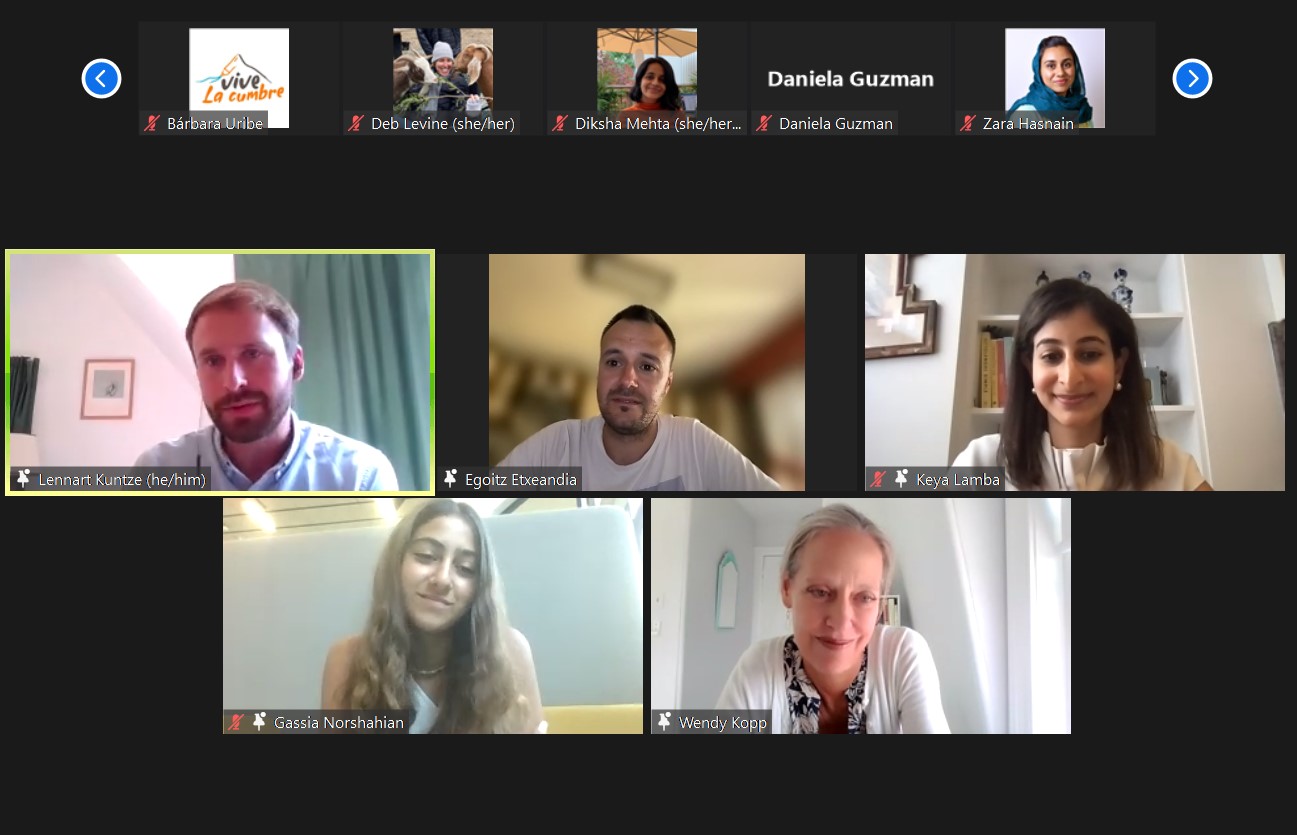"Education is the most powerful weapon which we can use to change the world”
- Nelson Mandela -

On July 13, 2022, a "Learning Forum: Climate Education & Leadership" panel took place with the presence of Wendy Kopp, CEO and co-founder of Teach For All and the founder of Teach For America, where speakers and leaders across the TFALL network attended and talked about their insights about climate education and their projects.
Winner at the Innovation Camp (ICAMP) on June 15, 2022, which is a project done by TFL in partnership with INJAZ, 17-year-old Gaccia Norshahian, one of Teach For Lebanon’s students at TFL’s partner school Sahaguian College and a student of Fellow Ahmad AlBaghdadi, was invited to be a speaker at the conference.
Gassia opened the panel by discussing Lebanon's economic situation and the issue of electricity, starting with her own neighborhood, Burj Hammoud, which triggered the discussion of how her nation may benefit from renewable energy. She then talked about how she and her classmates became more aware of climate change after attending a session held by TFL Fellow Ahmad El Baghdadi, and how she felt personally responsible to do something about it in her community, as well as her profound anguish over what is happening globally. Finally, Gaccia voiced her disappointment that this problem is not accessible to all students and is largely overlooked because it is not covered in the curriculum.
"Out of 100 countries surveyed by UNESCO last year, only 53 national curricula make reference to climate change or environmental sustainability." Hence, Gaccia expressed that schools should start implementing the topic in their curriculum more.
Natalia Herrera Agudelo, a panelist, stated, "Very much agree with you Gaccia; it is very important that teachers have more access to training that allows them to understand the problem of climate change more deeply and holistically so that they feel confident to bring these ideas of innovation into their classrooms."
The key barriers to this concern are that less than 40% of teachers are confident in teaching about climate change, according to UNESCO, which means the majority of teachers lack both confidence and subject-specific knowledge. In addition, teachers are overburdened, and climate anxiety is on the rise among students; hence, it needs to be taught in a solution-driven and empowering manner.
As a result, it is vital to have discussions about integrating climate education within existing subjects and not considering it as an isolated activity.
By and large, as Gaccia said, "since students are the future, then they should be prepared to tackle any issue related to climate change," and as Wendy Kopp added, "It is on us to find a way to make sure that students are equipped with the knowledge and skills and are encouraged to become local problem-solvers."

Number of fellows: 5
"Education is the most powerful weapon which we can use to change the world”
- Nelson Mandela -